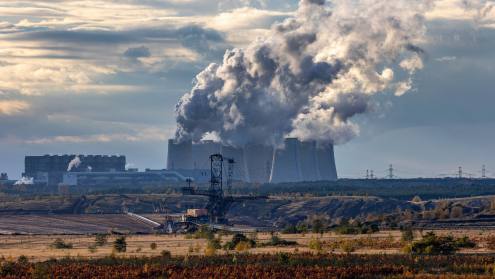IMF Managing Director advocates role as international lender of last resort.
Dominique Strauss-Kahn, managing director of the IMF, has urged the Fund's governors to consider giving it the resources and mandate to become a global liquidity supplier to central banks. Speaking before the IMF and World Bank annual meetings in Istanbul, he argued that this would reduce the tendency for central banks - especially in Asia and Latin America, to "self insure" with ever-growing foreign exchange reserves."Such self-insurance-as opposed to collective financial insurance-is costly. At the country level, investing in foreign reserves is inefficient because of foregone alternative investments, such as education or infrastructure, which could have a much higher social return," said Mr Strauss-Kahn."It also complicates monetary and exchange rate policy, since accumulating reserves means injecting domestic liquidity into the system, which can stoke inflation," he added.The idea is also designed to tackle the global financial imbalances, which saw an insatiable Asian appetite for export-driven growth and US Treasury bonds. This created artificially low financing rates in the US that are thought to have contributed to the unsustainable American credit bubble. The IMF reserves would presumably maintain a higher level of currency diversification, or be held through the synthetic Special Drawing Rights.
The mechanisms for providing liquidity proposed by Mr Strauss-Kahn would be simpler than the traditional IMF fiscal lending programmes, which come with significant prior conditionality that can delay disbursements and deter governments from seeking IMF help."This is the right move for the IMF, we have a global financial system, so it needs to be able to think globally, rather than just working on individual country programmes. If you fear an epidemic, you need to inoculate everyone, not only those who are already sick," said N.A.L. Cabraal, governor of the Sri Lankan central bank.He added that, if the IMF had been able to dispense funds more rapidly in early 2009, the impact of the crisis on some emerging markets might have been less severe. "Slowness of response could be tolerated in the past, but with the development of technology and global markets, crises can move too fast for long deliberations," said Mr Cabraal. The IMF board approved a programme of $2.6bn to bolster Sri Lankan reserves in August 2009, but Mr Cabraal said the financial situation in the country had already begun to stabilize by that time.However, other current and former financial policy-makers raised doubts about whether a global central bank reserve mechanism is workable, or even desirable. Stanley Fischer, the governor of the Bank of Israel and a former deputy managing director of the IMF, said the Fund should be cautious about lending money with fewer strings attached."I am less concerned that countries do not want to turn to turn to the IMF as a first resort, because countries have to have some incentives to manage themselves well," said Mr Fischer, who presented a report on the reform of the IMF on behalf of the influential Group of 30 financial policy-makers during the IMF meetings."There is a delicate balance between making your facilities available in case of need without political creating stigmas, and not being a source of infinite liquidity whatever the circumstances," Mr Fischer warned.Independent analysts have expressed concern about recent loan disbursements to Ukraine, which were approved by the IMF despite the government's failure to meet IMF targets, and the use of central bank funds to bail out large private companies such as gas importer Naftogaz.And Mario Blejer, former governor of the Argentine central bank who is now on the board of the Mauritian central bank, said Mr Strauss-Kahn's proposal would not end the problem of excess reserves and global imbalances."You are really just moving reserves from one location to another, so the problem of opportunity cost still exists. And if countries think the reserves held by the IMF may be more difficult to access, they will continue to hold large reserves of their own," said Mr Blejer.Despite the easing of prior conditions allowed by the IMF under the Flexible Credit Lines programme in 2009, Mr Blejer said many governments were still concerned that requesting IMF money could have unfavourable political consequences at home, so they preferred to use their own resources.






